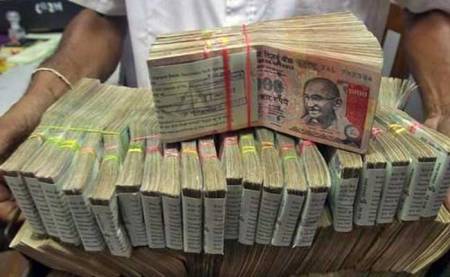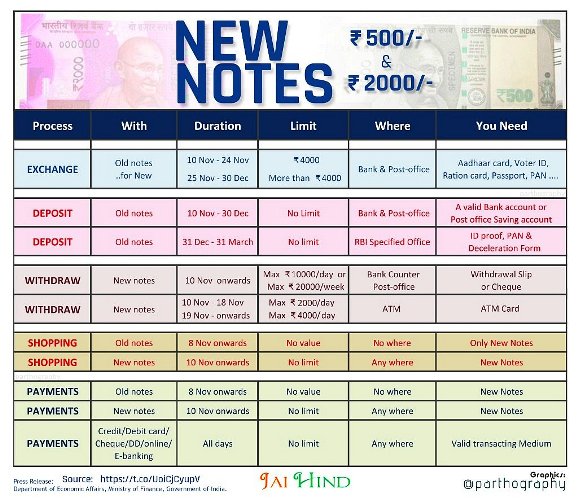The Reserve Bank of India said the most important reason for the ban was the abnormal rise in fake currencies of higher denomination, and also the higher incidence of black money in the system, but assured the public that a person who changed his higher value cash will get exactly the equal amount in lower denominations.
The government's decision to declare Rs. 500 and Rs. 1000 rupee notes has evoked positive response from economists and industrialists. The decision to scrap Rs. 500 and Rs. 1,000 notes is very good to combat black money, said Justice (Retd) M.B. Shah, Chairman of SIT on blackmoney. Those holding untaxed assets, income despite opportunity to declare will suffer, he added.

The legal tender character of the notes in denominations of Rs 500 and Rs1000 stands withdrawn . In consequence thereof withdrawn old high denomination (OHD) notes cannot be used for transacting business and/or store of value for future usage. The OHD notes can be exchanged for value at any of the 19 offices of the Reserve Bank of India or at any of the bank branches or at any Head Post Office or Sub-Post Office..

Currencies, inflation, deflation, payments and banking is a very interesting subject for me and I have read a lot of books on this topic. This is just my opinion, but I am bold enough to share this in the public domain. However, I may be wrong. Let's see how this pans out. Today is an iconic day in India's journey. History in the making. Nov 8th 2016! This would be a day to remember.
No. You will get upto Rs 4000 per person in cash irrespective of the size of tender and anything over and above that will be receivable by way of credit to bank account.